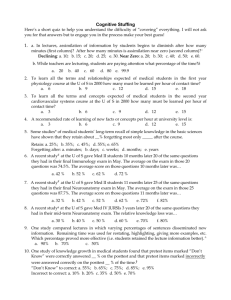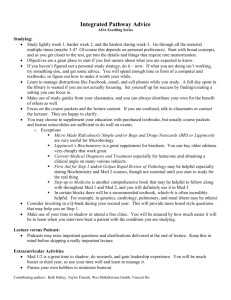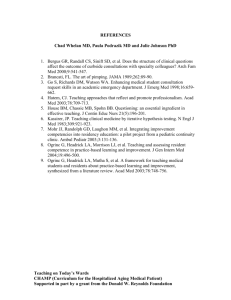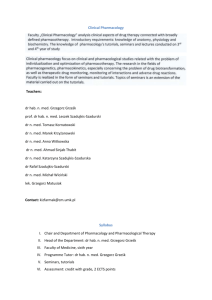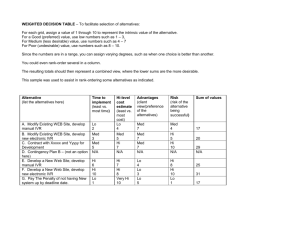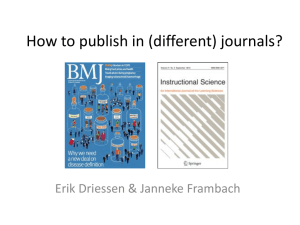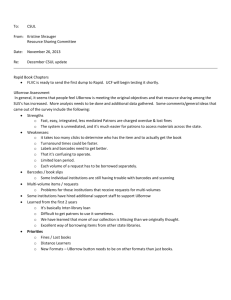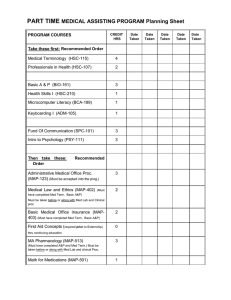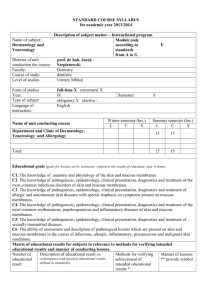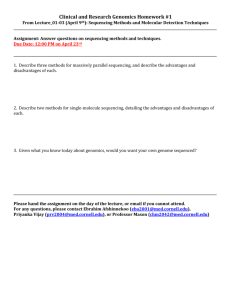Emergency medicine
advertisement
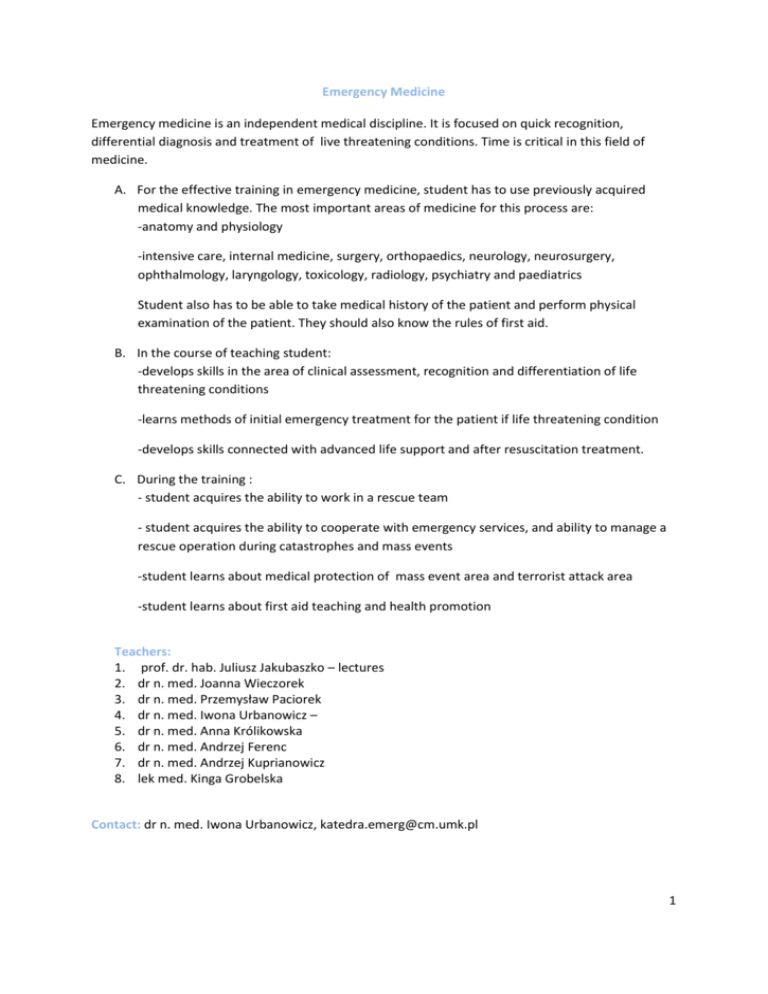
Emergency Medicine Emergency medicine is an independent medical discipline. It is focused on quick recognition, differential diagnosis and treatment of live threatening conditions. Time is critical in this field of medicine. A. For the effective training in emergency medicine, student has to use previously acquired medical knowledge. The most important areas of medicine for this process are: -anatomy and physiology -intensive care, internal medicine, surgery, orthopaedics, neurology, neurosurgery, ophthalmology, laryngology, toxicology, radiology, psychiatry and paediatrics Student also has to be able to take medical history of the patient and perform physical examination of the patient. They should also know the rules of first aid. B. In the course of teaching student: -develops skills in the area of clinical assessment, recognition and differentiation of life threatening conditions -learns methods of initial emergency treatment for the patient if life threatening condition -develops skills connected with advanced life support and after resuscitation treatment. C. During the training : - student acquires the ability to work in a rescue team - student acquires the ability to cooperate with emergency services, and ability to manage a rescue operation during catastrophes and mass events -student learns about medical protection of mass event area and terrorist attack area -student learns about first aid teaching and health promotion Teachers: 1. prof. dr. hab. Juliusz Jakubaszko – lectures 2. dr n. med. Joanna Wieczorek 3. dr n. med. Przemysław Paciorek 4. dr n. med. Iwona Urbanowicz – 5. dr n. med. Anna Królikowska 6. dr n. med. Andrzej Ferenc 7. dr n. med. Andrzej Kuprianowicz 8. lek med. Kinga Grobelska Contact: dr n. med. Iwona Urbanowicz, katedra.emerg@cm.umk.pl 1 Syllabus I. Name of the unit offering the course: Chair of Emergency Medicine II. Head of the unit: prof. dr hab. Juliusz Jakubaszko III. Faculty of Medicine, Medical Program, year V IV. Course coordinator: prof. dr hab. Juliusz Jakubaszko V. Form of classes (lectures, tutorials, seminars): Lectures , tutorials VI. Form of crediting: Credit, 3 ECTS points VII. Subject hours: 60 hours (20h lectures, 40 tutorials) VIII.Topics of the classes: Emergency management in poisoning Legal aspects of resuscitation Basic life support Pediatric emergencies Cardiology emergencies Neurology emergencies Environment emergencies Respiratory enefficiency Emergency in trauma, mass casualty incidients and disaster. History of emergency medicine. Emergency medical system in Poland. IX. Self-study topicsX. Booklist (basic / additional) 1.Tintinallis Emergency Medicine Manual 7 th edition,Mc Graw Hill Medical 2.Shash B.,Lucchesi M. Atlas of Pediatric Emergency Medicine.Mc Graw Hill Medical 3.Greenberg’s Text –Atlas of Emergency Medicine, Lippincott Wiliams & Wilkins 4.Guildeness 2010 CPR www.prc.krakow.pl Rules and regulations 2
